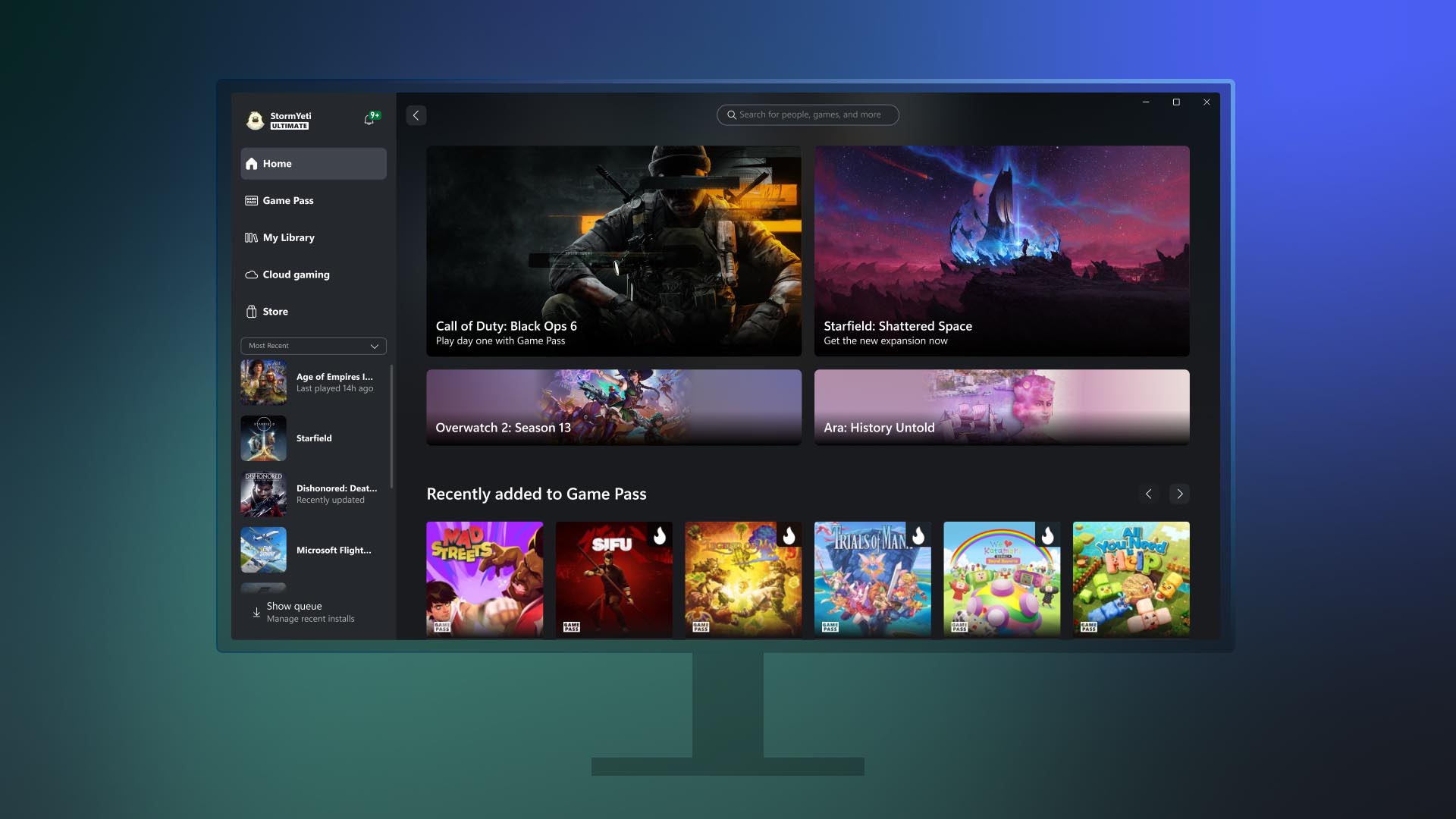The Rise Of The Golden Idol Review – The Memory Remains
My first inclination is to figure out who everyone is, from the inmates lined up outside to the prison guards inspecting the now-empty cells. Some first names are uttered in dialogue or scribbled on the side of the cell block in graffiti. Surnames can be found in formal letters and employee logs. Now it’s a matter of putting names to faces, repeating conversations I’ve already had or looking through my notes to see who’s talking to or about who, perusing an obscured note in the boss’s office, and rummaging through all of the inmate’s belongings. Once I know who everyone is and in which cell each prisoner resides, I just have to figure out how one of them masterminded a daring escape.
Much like its predecessor, The Rise of the Golden Idol presents you with what is essentially a diorama of a moment in time–typically taken at the precise second, or in the immediate aftermath, of a crime. It’s up to you to deduce what exactly happened by pointing and clicking through all of the available evidence to figure out–among other things–who was involved, which items are incriminating, and what the exact sequence of events was. Whereas 2022’s The Case of the Golden Idol revolved around a slew of murders related to the eponymous Idol, the kill count in this sequel is decidedly lower. There are still more than a few dead bodies amongst its 20 cases, but you’re also tasked with unraveling the events behind prison escapes, experimental lab tests, and the backstage chaos of a talent show gone awry.
Rise of the Golden Idol picks up 200 years after the events of the first game, as the grisly history of the Golden Idol follows the artifact from the 18th century to the semi-modern setting of the 1970s. Once again, you’re cast as an observer of these strange cases; an omnipresent force given license to freely explore each tableau at your own pace, burrowing into people’s pockets, opening any door, and using logic to piece together the lurid events of its interconnected story.
Similarly to the first game–and contemporaries such as The Return of the Obra Dinn and Shadows of Doubt–The Rise of the Golden Idol doesn’t hold your hand. It quickly teaches you to think for yourself as you embark on solving its many mysteries across five distinct chapters. There’s a built-in hint system, but it’s not designed to simply tell you the solution. Instead, it’s a tool to push you in the right direction, letting you decide if you want it to ask you a leading question, provide further guidance, or give you a direct hint. Outside of this, you’re on your own. There’s an element of trial and error involved at times, and it’s possible to brute force your way to some solutions, but for the most part, only deductive reasoning will lead to the right answers.
There’s still nothing else quite like The Case of the Golden Idol’s unique style of crime-solving, yet that doesn’t mean The Rise of the Golden Idol rests on the laurels established by its predecessor, either. The interface has been reworked to make the puzzle-solving much more streamlined. Keywords–like names, items, locations, and verbs–are now automatically added to your veritable phrasebook, saving you from having to click on each one individually. The only downside is that, with so many recurring characters, it feels redundant having to re-discover everyone’s names again when they appear in new cases, even if the process is simpler.
Another UI improvement means you no longer need to constantly switch between exploring a scene and using the old “thinking” mode, in which you would transition to a different screen to drag and drop words into blank spaces in order to solve each crime. You still need to complete these fill-in-the-blank statements–“blank and blank discovered the body of blank,” for example–and ascertain other information, such as who won what item at an auction or which noise agitated which exotic bird. But now these statements appear as moveable pop-out windows, letting you observe the scene and surmise everything that happened simultaneously. It’s a much more intuitive way to piece everything together and makes the process of cross-referencing details a lot easier. There’s even a quality-of-life toggle to minimize every window when the screen gets too cluttered.
The Rise of the Golden Idol’s drastic shift in setting makes for a notable difference in the sorts of crimes you’ll be investigating, too. Not to mention some of the methods used to solve them. In one case, you need to match fingerprints to the people they belong to and then use this information to determine which characters touched a specific piece of equipment. Later on, a different case sees you investigating a dead body in a zoo, while another involves drugs on the set of a beachside photo shoot.
The sorts of characters you’ll meet are also differentiated. While the first game dealt with aristocrats, a clandestine cult, and other period-appropriate figures, Rise of the Golden Idol features corporate profiteers, middle managers, and an altogether different kind of cult selling itself on achieving enlightenment. I won’t spoil the story with too many details, but one of the key themes focuses on the folly of human hubris–something that’s all too relatable today. All of this goes a long way toward making each vignette feel fresh and unlike anything found in the previous game.
There are a few cases that just didn’t click with me, however, mainly due to the absence of murder–or any sort of criminal wrongdoing, really. These scenarios usually provide a tidbit of narrative to keep things moving but are otherwise unremarkable because the stakes are so low. The “Aha!” moment that occurs when you crack a case isn’t nearly as satisfying when you’ve simply figured out the path a block of ice took rolling down a hill as opposed to figuring out who killed another human being. I appreciate the added levity these cases typically provide, but they would feel like filler if not for the pertinent information each one tends to add to the overall story.
Fortunately, the underwhelming cases are firmly in the minority. The menagerie of engaging scenarios quickly grows more complex as additional characters are introduced–usually with nebulous motives–and unrelated clues are mixed in to throw you off the scent. By virtue of being a sequel, The Rise of the Golden Idol was never going to feel as surprising as its predecessor, but it builds on those foundations with even more intricate puzzles, forcing you to think outside the box. Whether you’re using images and colors to decipher a coded message or rewatching a video over and over again to figure out the secret meaning hidden within a dancer’s movements, no two cases are the same.
Gallery
The environments themselves also contain crucial details that aren’t necessarily marked as clues, yet are imperative to find if you want to piece the entire jigsaw together. For instance, a band-aid on someone’s finger might reveal who took a photograph, while the color of a model’s lipstick could point to their identity. Each case may initially seem disparate, too, but like the red threads on a detective’s corkboard, connections eventually begin to reveal themselves as you uncover the overarching narrative unifying them all.
This brings us to another new feature that crops up at the end of each chapter. Here, you’re tasked with completing a new statement that summarizes everything that happened in the underlying story during the most recent batch of cases. With such a tangled web of mysteries, it would be easy to feel lost or overlook important details without this–as was the case in the first game. But this prevents that from happening by tasking you with fully analyzing everything that just happened, making the story much more cohesive and easy to follow.
A few underwhelming cases do little to dampen The Rise of the Golden Idol’s unmistakable quality. This is a worthy successor to one of 2022’s best games, putting a fresh spin on its singular concept with another collection of challenging and inventive puzzles. With a compelling story tying it all together and smart changes to its interface, Rise of the Golden Idol is everything you could ask for from a sequel; it’s an excellent continuation of a singular idea, and there’s already more on the way. Armchair sleuths are eating well.
Source link



